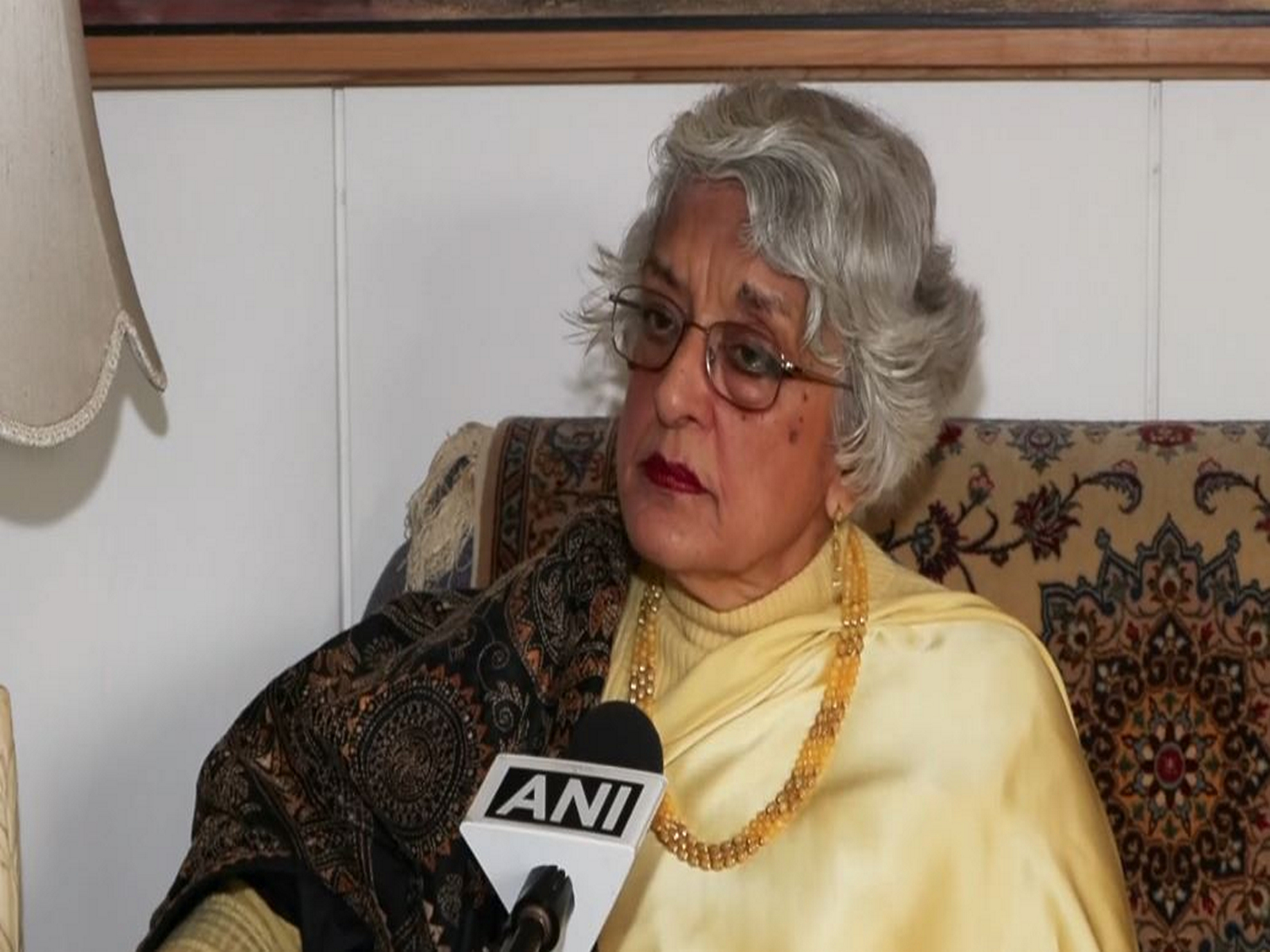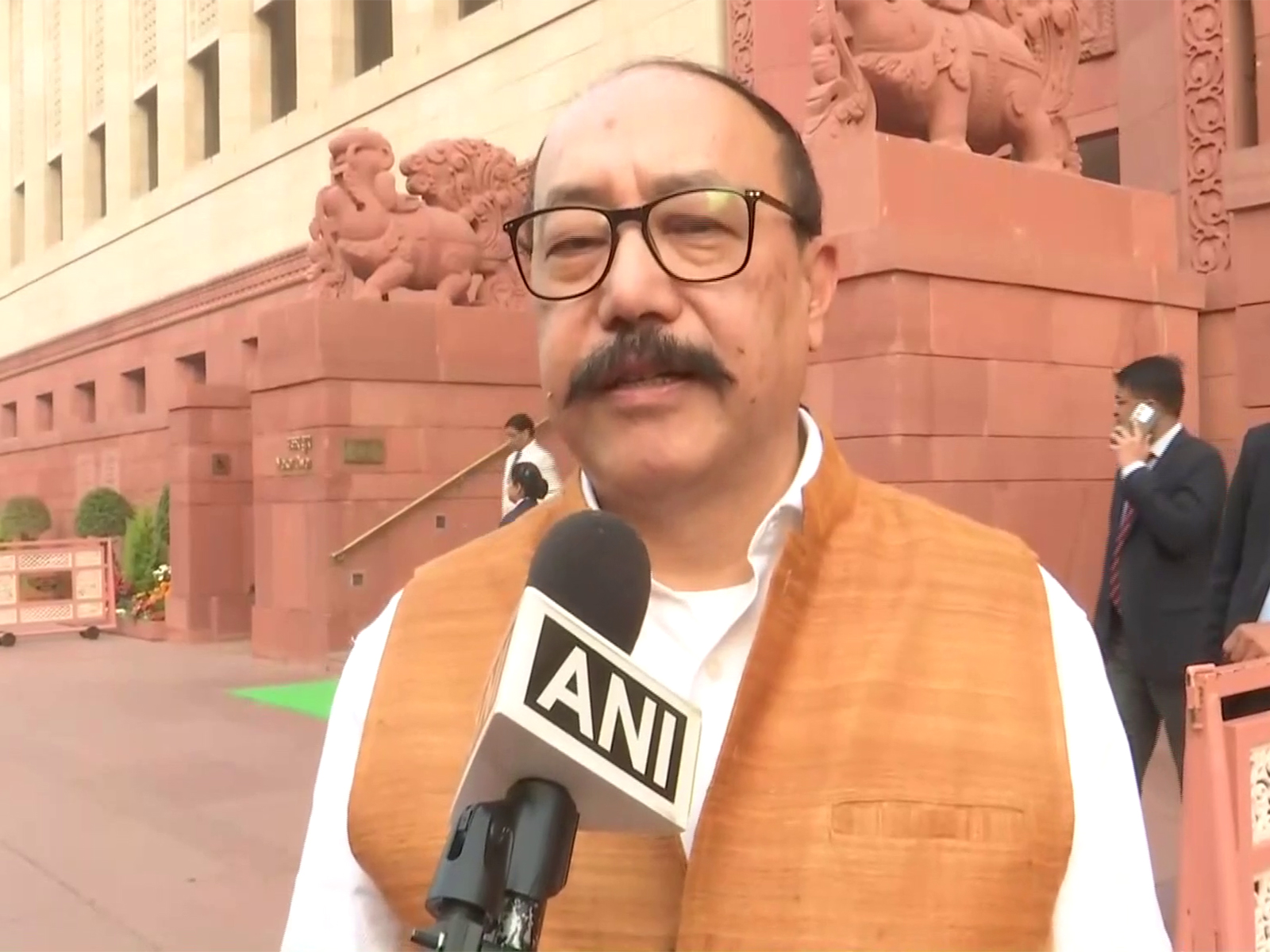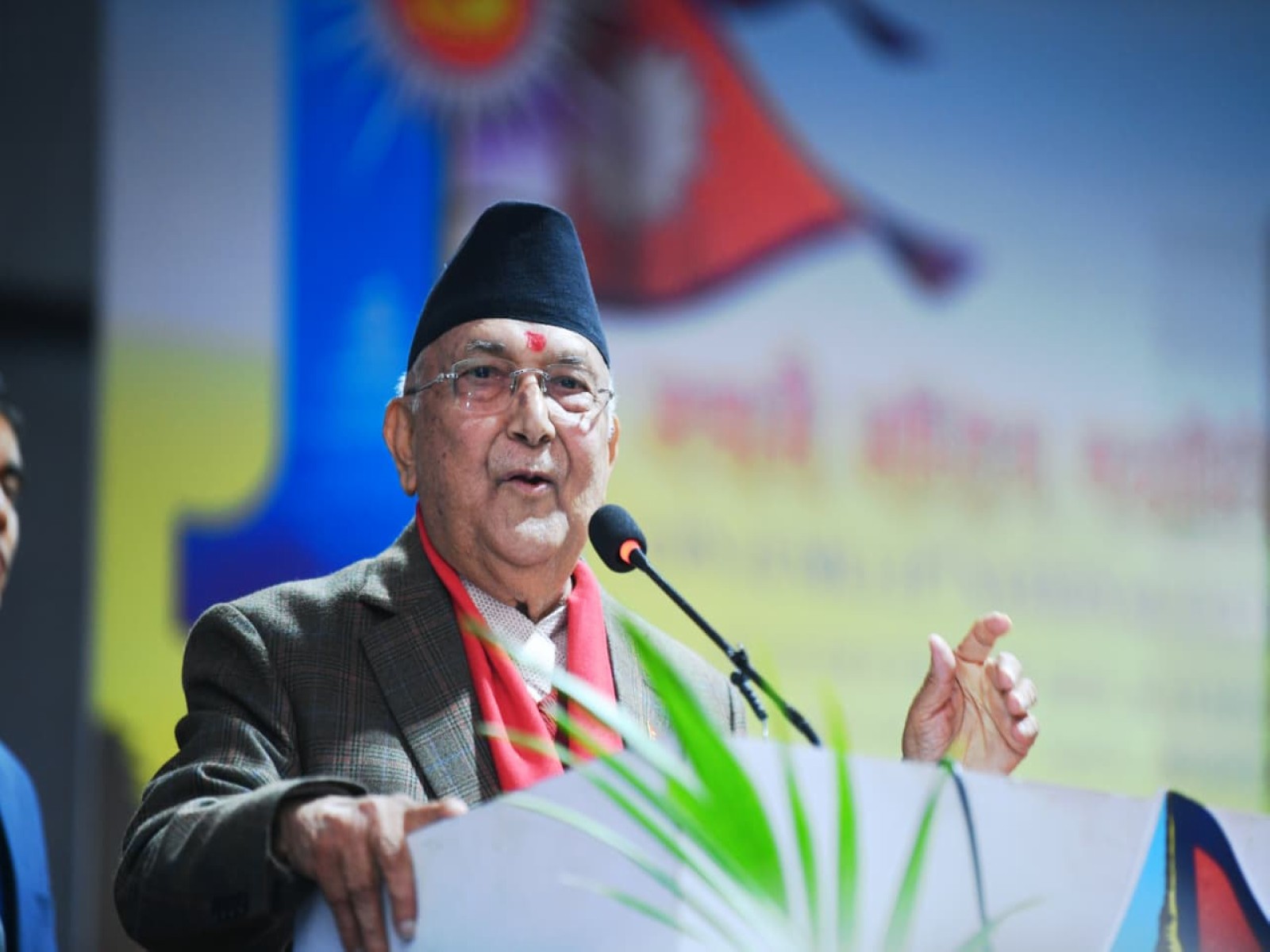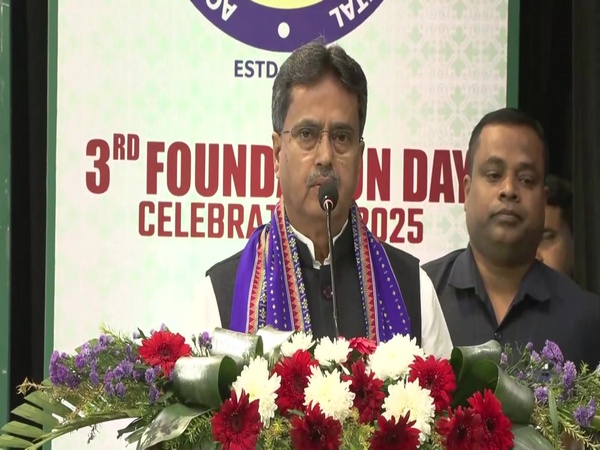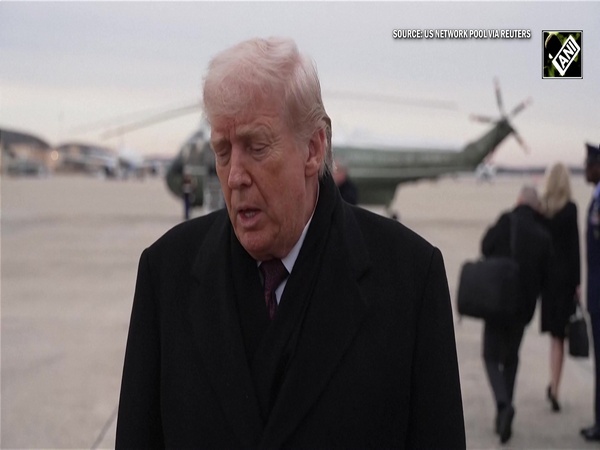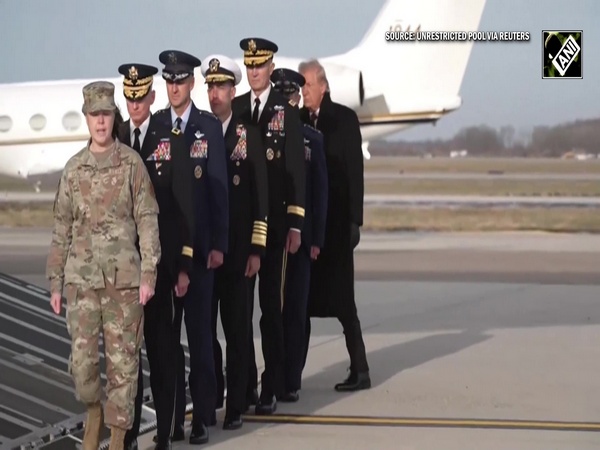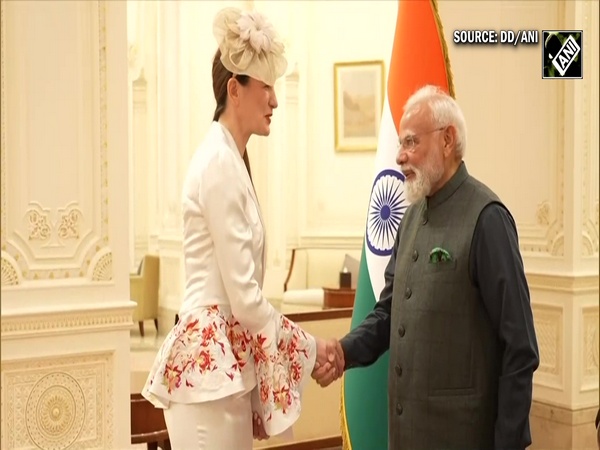Afghan people losing trust in West, women's rights were not important in US-Taliban agreement: Rights activist Haidari
Jun 01, 2024

By Diksha Rathore
New Delhi [India], June 1 : Amid international concern over the erosion of women's rights in Afghanistan, Omar Haidari, a Berlin-based Afghan rights activist, has said that the Western countries cannot escape their share of responsibility for the human rights issues and that the agreement signed by the US with Taliban in February 2020 showed that the rights of women were not a core concern for the countries in the West.
Omar Haidari recalled the events leading up to the August 2021 takeover of Kabul by the Taliban and claimed that people were losing trust in the Western countries as the situation continues to be difficult for women.
"What happened in Afghanistan on August 2021 was not very unforeseen for the people of Afghanistan, considering how rapid the changes in the perspectives and policies of the Western world towards Afghanistan were. What the people did not expect was the pace of it...the deal between Taliban and the US, which happened in Doha, highlighted that the human rights or the rights of women were never of importance for the West," Haidari told ANI in an interview over Zoom.
"It did not come once through the public agreement that they put out there to the people. And (there were) a lot of hidden annexures that they have with the Taliban in that deal. And it's not new," Haidari said referring to the Doha Agreement.
His remarks come ahead of UN-organised meeting in Doha later this month which is expected to be attended by Taliban. The UN has earlier held two Afghanistan Conferences in Doha.
Haidari, who was born in Afghanistan, said the US and their allies in Afghanistan provided some military support to the Afghan army but allowed Taliban to establish their political office in Doha.
"So they have been negotiating with Taliban since last ten years. It's not a new thing. People have lost their trust in the West, in their promises. It's going to leave a long-lasting impact on the people, especially on the women in Afghanistan. How they were betrayed, how they were left alone, how their very basic human rights were never important in the deal they made with the Taliban," Haidari said.
The Doha accord was an agreement signed by the United States and the Taliban on February 29, 2020 in Doha, Qatar with the two sides issuing a joint declaration "for bringing peace in Afghanistan".
Haidari said in the past years, some Taliban representatives have promised people that they will reopen the schools, universities for women in Afghanistan.
"They have lied. They made people wait. They said there were problems with the curriculum system that we had because it was built by the westerners and it was against the values of Sharia, against the values of Islam. But those were all just excuses to buy themselves time until it's just normalized and less important for the rest of the world," he said.
"The situation of women in Afghanistan is of no importance for the world anymore. The biggest or the most support that we could get is only condemnation letters...that has been nonstop by the UN institutions...it does not come with any serious consequences for the Taliban," Haidari added.
He said that the United Nations Security Council has the "power" to exert pressure on Taliban.
"The UN or the United Nations Security Council do have power to put pressure on Taliban, to sanction Taliban, their properties, their freedom of movement while they have kind of isolated half the population inside the country. Yet the UN, instead of pressuring them, they have been pushing the idea of selling the idea that the dialogue is the only way and that we could convince Taliban to change," said Haidari.
He said that tens of thousands of women professors, teachers, journalists, lawyers, doctors in Afghanistan, some of whom were "breadwinners" of their families, are now jobless.
Haidari said despite the strife in Afghanistan before Taliban takeover, there was good market in most parts of the country, especially in areas like Mazar-i-Sharif, Kabul, Herat and there was some circulation of money.
"Women contributed nearly USD 2 billion a year to the economy of the country," he said, adding that it "leaves its impact and side effect on the situation, on livelihood of people, and it only leads people to even more crisis," he said.
He claimed that a large number of people left Afghanistan since the Taliban takeover.
"These one million people played a major role in keeping the economy of the country moving because most of them were educated business owners and were actively working there with NGOs, companies, international companies...they left the country," he added.
He said Afghanistan's faltering economy has resulted in a humanitarian crisis. Haidari alleged that those ruling the country are not prioritizing the good of the people.
"They are knowingly and intentionally continuing with stone-age ideologies and policies that they have, which leaves a direct impact on how we interact with the rest of the world and how our people grow and develop and contribute within the society," the rights activist said.
In February 2020, the United States and the Taliban signed an agreement on the withdrawal of international forces from Afghanistan by May 2021. In April 2021, NATO Foreign and Defence ministers decided to withdraw all Allied troops from Afghanistan within a few months.
With the US and NATO forces announcing withdrawal from the country, the Taliban began an assault on major cities and seized control of several of them. In less than a week, the Taliban had captured seven out of 34 provincial capitals in the country.
Former Afghan President Ashraf Ghani fled the country, and the Taliban forces took control of Kabul in August.
Referring to Iran and Pakistan, Haidari said over eight million Afghans have gone to these countries.
"Some generations are born there. They do not have access to basic things...," Haidari said as he recalled people fleeing Afghanistan in 2021 to neighbouring nations when the Taliban returned to power nearly two decades following US decision to withdraw troops.
"In this very harsh and difficult times, both Iran and Pakistan have deported an estimated one million people into a country where there is no work, there is a crisis, there is no life for women," he said.
The United Nations High Commissioner for Refugees (UNHCR) has characterised the state of human rights, particularly the rights of women and girls as well as religious and ethnic minorities in Afghanistan, as grave.
The UN held the first Afghanistan Conference (in Doha) in May, 2023 without the Taliban with the objective of developing a common international approach towards Afghanistan
The second Afghanistan Conference was called by UN Secretary-General Antonio Guterres in Doha, Qatar, in February this year.
Under-Secretary-General for Political and Peacebuilding Affairs, Rosemary DiCarlo, visited Afghanistan from May 18 to 21 and held discussions about UN meeting of Special Envoys in Doha on June 30 and July 1.
